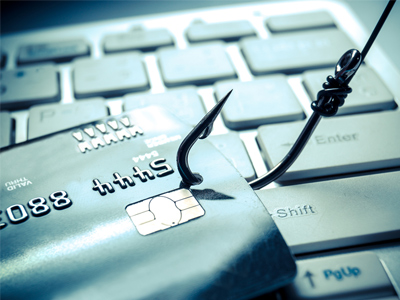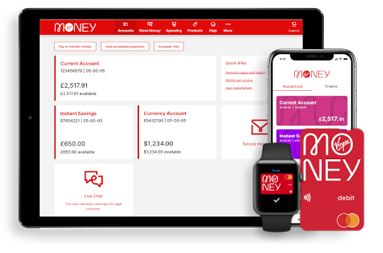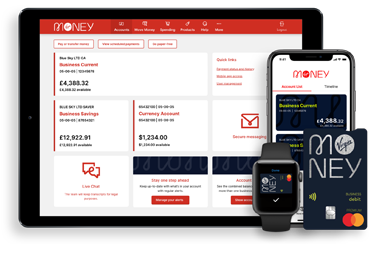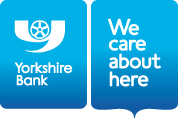-
Login
More Login links
Internet Banking
Business Internet Banking
Started an application?
Other services
Help
-
Register
More Register links
Internet Banking
Business Internet Banking
Other Services
- Our Products More business product links
Bank accounts
- Business current account
- Business choice account
- Switching business accounts
- Compare all business accounts
Savings accounts
Loans and Finance
- All Treasury solutions
Treasury solutions
Help and support
- Online Banking More online banking links
BusinessOnline
- Commercial More commercial business links
Business enquiries
Contact us about a general enquiry.
- Corporate and Structured Finance More corporate business links
Corporate and Structured Finance
SME Cashflow Finance
Unlock your cash flow potential. At Yorkshire Bank we take a flexible approach to business borrowing.
Lending is subject to status and eligibility.
- Our Sector Expertise More sector expertise links
Stop fraud; small business tips to keep your money safe
< back to all business news articles
15/03/2019
Industry research suggests that a significant number of businesses each year are victims of payment fraud, and that they’d suffered cash losses as a direct result. The Take Five To Stop Fraud website revealed that a quarter of UK businesses admit they've experienced payment fraud, yet a disturbing 49% think, despite this trend, that it won't happen to them.
As well as the monetary impact, they suffered other consequences such as lowered staff morale and had a negative influence on client relationships.
Payment fraud can be difficult to detect – most business owners want to assume payments for their goods or services are legitimate. Because there are a number of ways to commit payment fraud, it’s vital that business owners are aware of them. This important not only for how you receive payments, but also for how you’re paying your creditors.
The upshot is that you should be concerned about payment fraud.


What is payment fraud?
Although payment fraud tends to happen most commonly in retail businesses, they’re not the only ones vulnerable by any means, especially when it comes to online shopping.
If you're in a bricks-and-mortar retail store, be on guard for the following:
- Returning of products – watch out for customers returning products they didn’t buy from you – or customers who pick up products in store before walking up to the counter for a cash refund!
- Stolen credit cards – ask for some photo ID if you’re suspicious of a customer, and double check signatures.
- Counterfeit money – if your business accepts cash, it’s worth learning how to spot counterfeit notes, especially £50 notes. Tell your cash handling staff to be on the lookout. Search online for common images of counterfeit notes so they know what to look out for.
- Bad cheques – cheques tend to bounce if they’re stolen or a customer’s account is empty. Avoid accepting cheques if you can. Instead, ask for a credit card with identification or for funds to be banked online. Always ask for photo identification.
Outside of the retail industry, common fraud includes:
- People order products and then don’t pay for them, or they use your service and then find a reason not to pay the bill.
- With international trading, customers may request deposits to ‘clear customs’ when they have no intention of buying them.
- Online businesses often experience payment fraud when customers have paid by credit card on the internet. The funds appear in your account and you send them the goods – should be safe, right? Not always – a common trick is that the customer will cancel the payment after 3 days and the bank reverses the funds.
- Another common internet trick is when an international customer places and pays for a very small order for equipment/stock. They then place a very large order which you send. But this is the fraud which you don’t suspect as they have previously paid.
Preventing payment fraud
As in most cases, prevention’s always better than a cure. Chasing up people who’ve swindled you is time-consuming, stressful and not always successful. It’s far better to have measures in place to prevent payment fraud happening in the first place.
- Provide good training for your employees – they’re on the front line. They need the tools and training to spot fraud at the source by regularly reviewing examples of fraud, and your business policy on what to do.
- Daily finance review – keeping tabs on your bank accounts to monitor what goes in and out on a daily basis and reconcile that to your records allows you to spot inconsistencies early, before they become a problem.
- Procedures for release/transfer of funds – document everything. Identify the main types of payment fraud that could impact your business. Then, clearly outline how to prevent it happening. Make sure your employees understand and comply with these rules as part of their employment agreement.
- Stay informed – talk to other business owners, spend some time researching online, and in general keep your eyes peeled for news of any recent frauds that might be operating.
- Background checks – if you’re even slightly suspicious, there’s nothing wrong with checking up on a customer. Search for them online or in social media, ring up the company, or conduct a credit check.
Offering debit or credit card options, taking payments electronically using mobile payment methods, and ensuring your store has a good surveillance system are all good ways to prevent fraud.
It is safer to not accept cheques as these provide an easier way for a fraudster to scam you. Your customers have a range of other options available to them, which is why you’ll go a long way these days to find a business that continues to accept cheques.
Summary
The best way to protect your business from payment fraud is by using the most up-to-date payment options available, and moving away from old systems. The better the technology, the better the security will be, and the harder fraudsters will find it to get around the systems.
Talk to us about the payment solutions we offer. We'll have something that’s perfect for your business and will actually enhance your relationship with your customers.
You can report fraud on our website. We also have a range of resources aimed at helping you keep your business safe from fraud.
Next steps
There are some useful online portals aimed at helping UK businesses avoid fraud and scams. For example:
- https://takefive-stopfraud.org.uk/
- https://www.actionfraud.police.uk/
- http://www.stop-idfraud.co.uk/
- https://www.cifas.org.uk/
- https://www.getsafeonline.org/business/
Talk to us about our business accounts, and how they can be set up to guard against fraud.
POSTED IN: Day to Day Banking,Startup,Finance advice
SHARE
Related Articles
You are here: Business Banking > Business News > Articles
- About Yorkshire Bank
- About us
- Virgin Money UK PLC
- Media relations
- Careers

Internet Banking has moved
To log into Internet Banking you now need to use Virgin Money Internet Banking. You'll get the same great service and are able to access all your accounts.
Your log in details will stay the same and you can log in directly from the shiny new Virgin Money website.
Continue to Virgin Money Internet Banking
Go to the Virgin Money website
Be Alert
Never tell anyone a token 3 response code, even someone from the bank. You should only input these codes to our secure Business Internet Banking service when you’re sending and making payments. If anyone calls and asks for a token 3 response code or asks you to authorise a payment on the App for fraud checks, hang up and call us on 0800 085 2914 from another line if possible, remember the Bank will never ask you to disclose your security details.
Continue to Virgin Money Business Internet BankingYou can find impartial information and guidance on money matters on the “MoneyHelper” website.
Yorkshire Bank is covered by the Financial Services Compensation Scheme (FSCS), Find out more.
